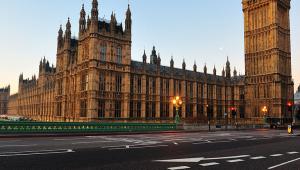‘New migrants should not expect to be given a home on arrival.’
What was in the Prime Minister’s mind when he put these words into his speech on Monday? Was it that he really thinks new migrants arrive expecting to walk straight into a council house? Or does he think that, whether they expect to or not, new migrants could easily get such a house, presumably ahead of others in the queue? And does he therefore believe that the housing crisis can at least partly be blamed on new migrants?
Let’s be charitable and assume he spoke from a lack of awareness of how social allocations work and the barriers that migrants face. What are they? First of all, of course, waiting times for any applicant are now very lengthy in most areas, so those qualifying are likely to have high housing needs combined with long periods on the housing register. Almost anywhere in the country, the chances of a new migrant or anyone else presenting themselves at a housing office and immediately being offered a house are negligible.
Second, new migrants are much more likely to be single or childless couples, who are unlikely to qualify either for an offer of a house or for homelessness provision.
Third, migrants have to satisfy tests before they can get any sort of state help. Broadly, if they are from the European Union, they need to show they are ‘habitually resident’. If they are from elsewhere, almost certainly they will have entered the UK on the basis that they will have ‘no recourse to public funds’, which means they can’t get social housing or benefits for several years.
These are the reasons why 95% of new migrants are in private lettings. Except for some whose income enables them to buy – including, of course, the rich foreigners buying houses in London – an insecure and often poor quality private letting is all that’s on offer for most new arrivals.
So what will be the effects if new restrictions are imposed? Three measures seem to be under consideration: tighter restrictions on the entitlements of EU citizens, longer periods of residence needed to qualify for social housing and penalties for private landlords who let to ‘illegal’ immigrants.
The first of these, reduced entitlements for EU citizens, will clearly have to comply with European law, or else be preceded by lengthy negotiations to change it. Simply reducing the current entitlements risks legal challenge, and the government already has form here (for example, it recently lost a case that involved the rights of EU-born children whose parents are not themselves EU citizens).
Making migrants wait longer before they can get access to social housing may also have little effect, since most will have waited a long time anyway. Imposing extended qualification periods before people can even get on the register is likely to force more people into homelessness, although of course councils can now discharge their homelessness duties through private lettings. So this may have some delayed effect, but will potentially cause a lot of hardship.
Migrants could face a further major barrier to getting accommodation at all, if private landlords are required by law to check their immigration status. It seems likely that many will no longer take the risk of offering lettings to obvious migrants. The ones that do will certainly include those unscrupulous landlords who operate on the margins of the law anyway – for example, those that the government has been targeting through its ‘beds in sheds’ initiative.
Landlords who decide to make checks will face the obstacle that – in the case of EU migrants especially – there is no document spelling out their entitlement since it is a matter of legal fact.
Overall, the measures have all the appearance of being thought up quickly without being thought through properly. The long-term evidence is that foreign-born households eventually have similar tenure patterns to UK-born households, which is hardly surprising. Some of the heads of these households will keep their original citizenship even though they have indefinite leave to stay in Britain. This is not surprising either – how many of the estimated 5.5 million Brits living overseas have renounced their citizenship?
If the government’s main concern is to increase the availability of social lettings to UK-born applicants, it could achieve this far more quickly in other ways. For example, it could halt the bedroom tax, because the movements that this is provoking within social housing will tie up many more lettings than are likely to be released by reducing the proportion of new lets that go to migrants. Or, of course, the government could decide to build more council housing, and respond to the demands made by a wide range of organisations just before the Budget.
Reducing the entitlements of migrant households may secure headlines, but it’s unlikely to make much difference to the record numbers on social housing waiting lists.












